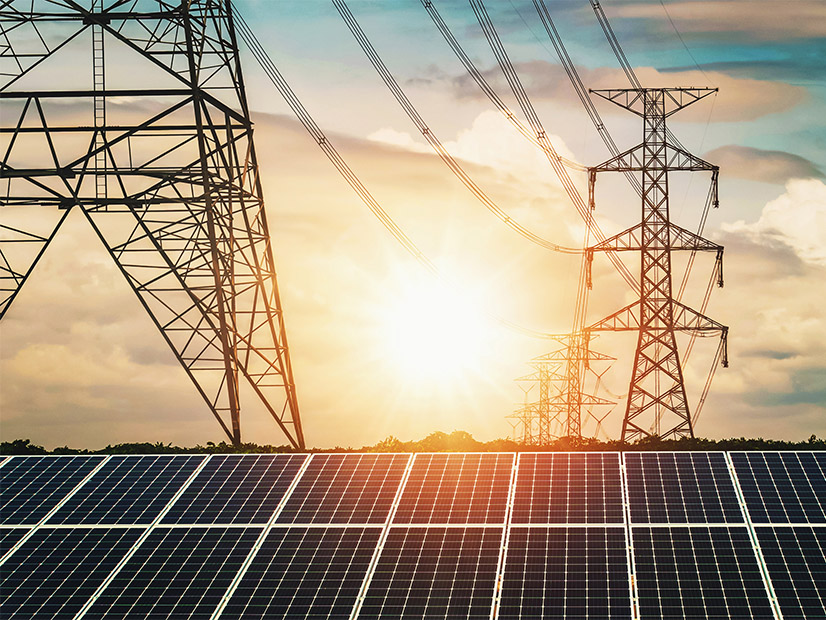
A company specializing in conductors that cut down on electricity line loss by as much as 40% was awarded a $3 million grant from the California Energy Commission last week.
The grant to TS Conductor Corp. was one of four that the commission approved on Wednesday as part of the Realizing Accelerated Manufacturing and Production for Clean Energy Technologies (RAMP) initiative.
The program is aimed at helping clean energy startups move from hand-built prototypes to the low-rate initial production stage, a step toward mass production. Companies at the initial production stage might be struggling to secure capital or figure out how their technology can fit into a manufacturing process, CEC staff said during the meeting.
TS Conductor will use the funds to expand manufacturing at its Huntington Beach factory, with a goal of producing up to 2,300 miles of covered smart conductors per year. The company’s conductors feature smart sensors that can provide information on power line conditions in real-time, while an insulated cover prevents lines from sparking and causing wildfires. The conductors have the potential to increase grid efficiency, lower ratepayer costs and improve safety.
The commission approved funding to three other companies on Wednesday as part of the RAMP initiative:
- Liminal Insights, which has developed an ultrasound-based inspection system used during EV battery manufacturing, will receive $2.75 million. Liminal’s system is designed to rapidly detect problems during battery manufacturing to improve battery yield, quality and safety.
- Skyven Technologies will receive $2.97 million. The company has developed steam-generating electric heat pumps that can be used in industrial applications, replacing natural gas boilers. The technology uses electric power to recycle industrial heat waste back into steam, using substantially less energy than electric boilers.
- Next Energy Technologies, which makes energy-generating windows for commercial buildings, will receive $3 million. The windows convert infrared and ultraviolet light to electricity, while allowing visible light to pass through. Multi-level commercial buildings often don’t have enough roof space for solar panels to offset the buildings’ energy usage, the company noted.
The CEC has previously funded 14 clean energy startups through two rounds of the RAMP program. Those companies have since raised $480 million in additional funding and now employ almost 600 workers.
CEC Chair David Hochschild said the RAMP projects help promote clean energy, in-state manufacturing and ratepayer benefits. Some projects have been more successful than others, he said, “but on balance, we are winning.”
“This is the role we should be playing,” Hochschild said. “This is the role of government.”
Battery Manufacturing
The commission also approved an initial $2.5 million award to CALSTART to administer a $25 million grant program for EV battery manufacturing in California. CALSTART, a nonprofit national consortium focused on clean transportation, administers other California programs, including the Hybrid and Zero-Emission Truck and Bus Voucher Incentive Project, or HVIP.
The CEC funds will allow CALSTART to get started on soliciting grant applications. Proposals will return to the CEC for approval of funding and environmental review. The money is coming from the California Budget Act of 2022.
The goal of the program is to increase in-state manufacturing of zero-emission vehicle batteries. Hochschild said he hopes some of the projects will be in Lithium Valley, an area of lithium extraction by the Salton Sea in Southern California. Co-location could lead to “very real process savings” in the manufacture of lithium batteries, he said.
Another CEC funding award on Wednesday was a $500,000 grant to GC Green Inc., a company that plans to install public EV chargers at the Tule River Eagle Feather Trading Post No. 1, about 60 miles north of Bakersfield.
The project includes two DC fast chargers, a Level 2 charger, and on-site solar with battery storage. The site is along State Route 190, an important rural corridor, proponents said.
The project aims to encourage EV adoption by the Tule River Indian Tribe and promote workforce development for the tribe. It’s also intended to demonstrate an EV charging model that other tribal communities can replicate.
“When you think about EV charging, you think about it as sort of a coastal elite phenomenon, and we have to make it for everybody,” Commissioner Patty Monahan said in supporting the grant.
